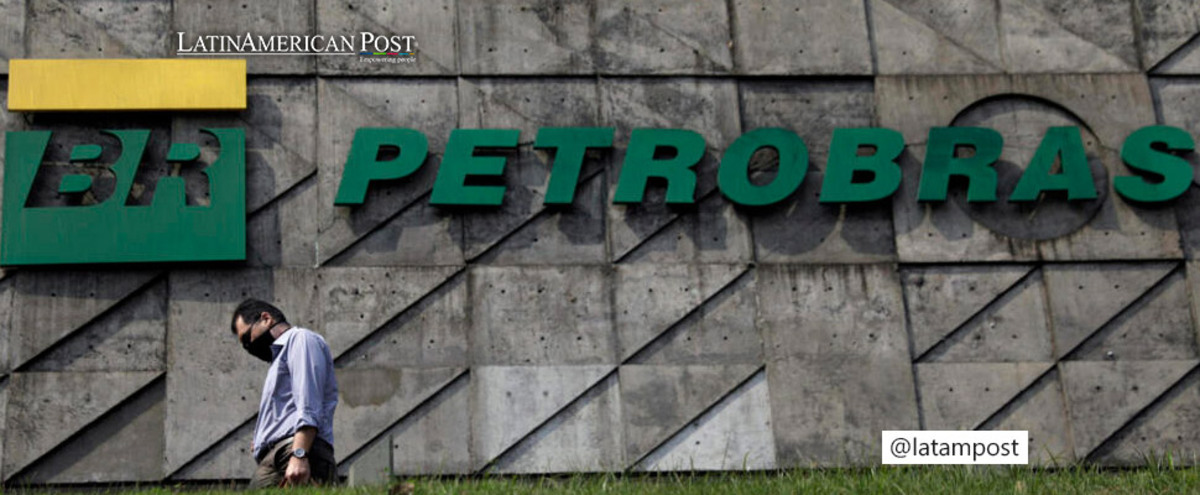Lula’s Impact on Petrobras: Balancing Jobs and Investor Worries
Brazil's President Luiz Inacio Lula da Silva's recent requests to modify Petrobras' investment plan for 2024-2028 have raised concerns about political interference and the balance between local job creation and investor interests.

Photo: Reuters
Latin American Post Staff
Escucha este artículo
Leer en español: El impacto de Lula en Petrobras: equilibrar el empleo y las preocupaciones de los inversores
Political Concerns Arise in Petrobras Meeting
In a recent meeting in Brasilia, Brazil's President Luiz Inacio Lula da Silva, commonly known as Lula, sat down with Jean-Paul Prates, the head of the state-run oil firm Petrobras, to discuss the company's investment plan for the years 2024-2028. The meeting, held on November 9, has sparked concerns about potential political interference in Petrobras' operations and the delicate balance between prioritizing local job creation and appeasing private investors.
Lula's requests during the meeting have ignited fresh fears of political meddling in Petrobras, an issue that has loomed over the company during previous administrations. Historically, the Brazilian government has pressured Petrobras to boost the nation's economy, sometimes conflicting with the interests of private investors and market-driven decisions.
The core of the matter revolves around Petrobras' upcoming investment plan, which is scheduled to be unveiled by the end of this month. Sources close to the case revealed that during the meeting, Prates presented Lula with a draft of this plan. It was during this presentation that Lula expressed his concerns and suggestions.
Lula's Concerns on Shipbuilding and Local Suppliers
One of the primary concerns voiced by Lula was Petrobras' purported lack of planned investments in Brazil's shipbuilding industry. This sector holds special significance for the former president and is an area he aims to revitalize. Lula advocated for substantially increasing Petrobras' commitment to the domestic shipbuilding industry. Specifically, he proposed that the company commissioned the construction of 25 ships in Brazilian shipyards, a significant deviation from the planned four vessels.
In addition to his concerns about shipbuilding, Lula criticized Petrobras for its reliance on foreign suppliers. He argued that the company should prioritize the utilization of Brazilian firms for its operations, echoing sentiments about enhancing the local economy and job creation. This stance aligns with his broader political agenda, which often emphasizes boosting Brazil's domestic industries.
Accelerated Project Completion and Preliminary Analyses
Furthermore, Lula requested that Petrobras accelerate the completion of a fertilizer factory located in Mato Grosso do Sul state. He aimed to ensure this project concluded two years ahead of schedule, allowing it to be finalized before his presidential term ended in 2026. This request reflects the political pressure to deliver tangible results during Lula's tenure, potentially at the expense of Petrobras' long-term planning and objectives.
Another aspect of Lula's engagement with Petrobras involved projects listed in the investment plan as being under preliminary analysis. He suggested expediting the initiation of these projects, indicating a proactive approach to economic development during his presidency.
The confluence of these requests raises essential questions and concerns. On the one hand, Lula's push for increased investments in domestic industries and local job creation aligns with his political agenda. It resonates with many Brazilians who view these initiatives as essential for economic growth and stability. However, such intervention in Petrobras' operational decisions may also undermine the company's ability to make market-driven decisions and secure investments from private stakeholders.
Complex Challenge Ahead for Petrobras
Balancing the interests of local job creation, economic development, and investor confidence is a complex and multifaceted challenge. Petrobras, as a state-run enterprise, faces the additional burden of navigating the political landscape and addressing the demands of the current government. This delicate equilibrium ensures the company's stability and capacity to contribute to Brazil's economic prosperity.
Also read: Brazil's Central Bank Lowers Interest Rates: Balancing Inflation and Growth
As Petrobras prepares to unveil its investment plan for 2024-2028, the influence of Lula's suggestions and the potential repercussions of his intervention will be closely watched by investors, industry experts, and political observers. Striking the right balance between political priorities and market-driven decisions will be pivotal in determining Petrobras' path forward and its role in Brazil's economic future.




